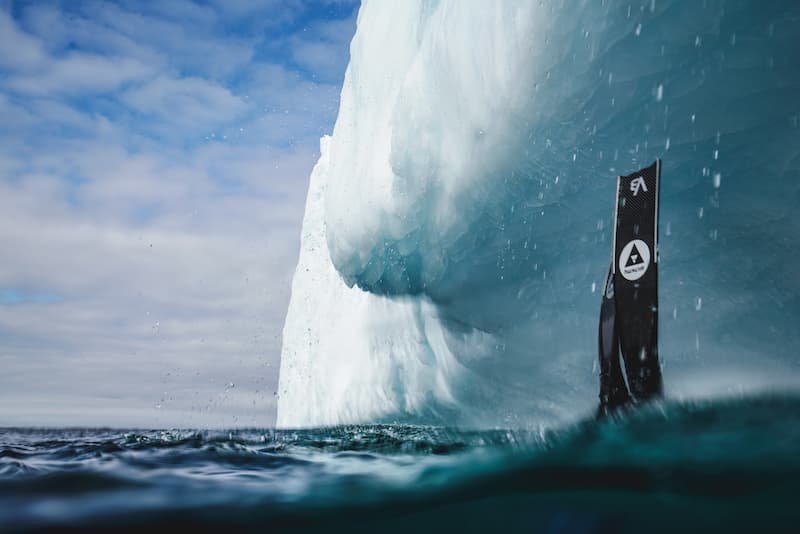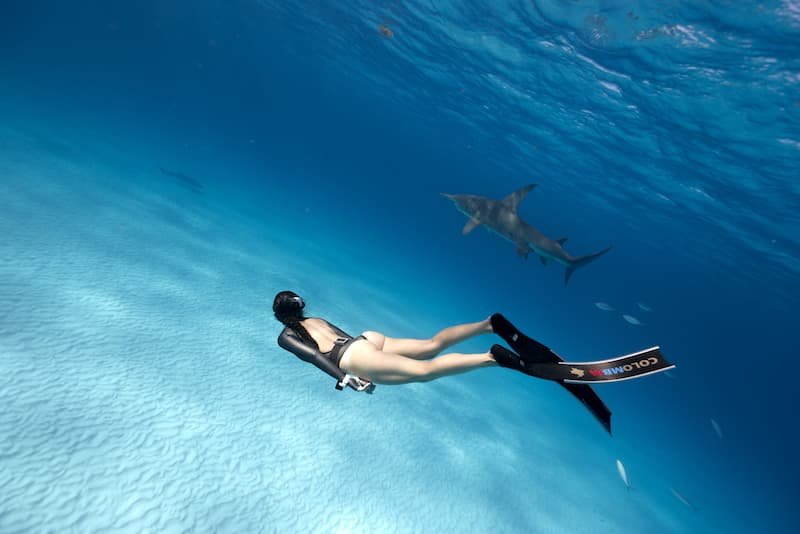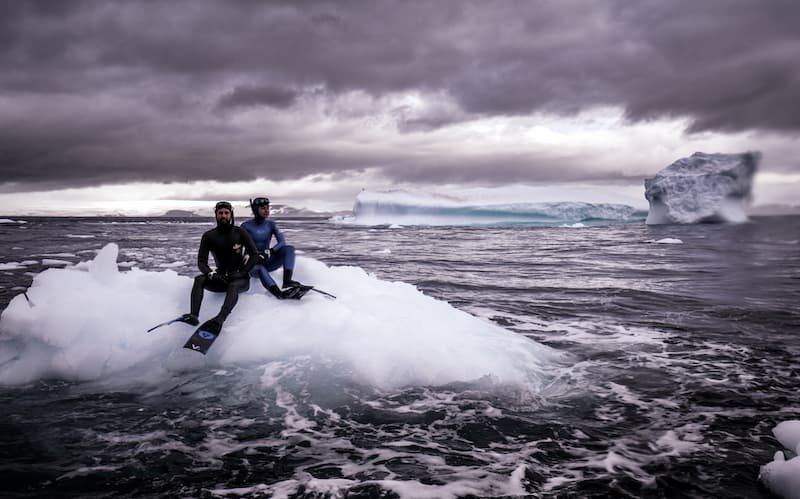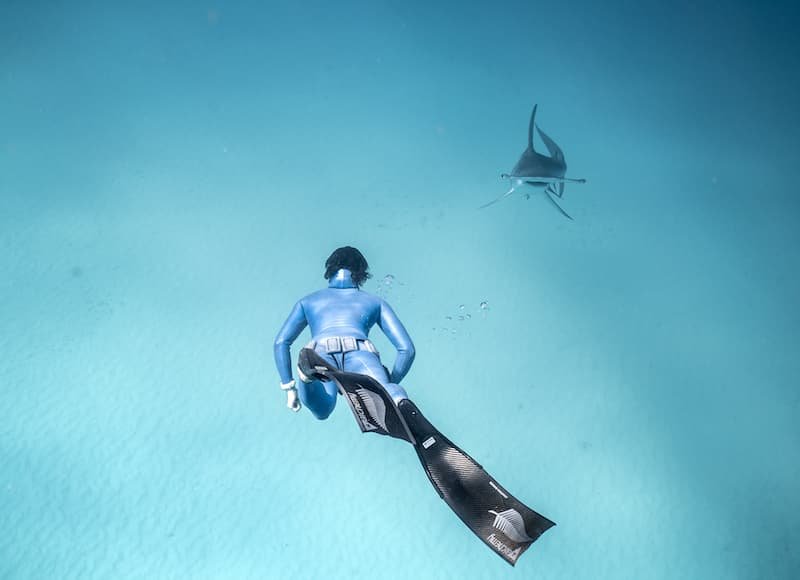
 Olivia Møller
Freediver - Activist - Explorer
Olivia Møller
Freediver - Activist - Explorer

 Olivia Møller
Freediver - Activist - Explorer
Olivia Møller
Freediver - Activist - Explorer
Freediving offers a unique glimpse into the mesmerizing world beneath the ocean's surface. However, this privilege carries with it the profound responsibility to protect the delicate ecosystems we explore. Dive site etiquette, a collection of practices and principles ensuring responsible diving, is a fundamental aspect of environmental stewardship. In this blog post, we will delve into the importance of adhering to proper dive site etiquette, supported by compelling data, expert insights, and references, underscoring the critical role it plays in safeguarding our fragile marine environments.
To grasp the significance of proper dive site etiquette, it is crucial to delve deeper into the current state of our oceans. Recent scientific data and research reveal the alarming challenges our marine ecosystems face.
Marine Biodiversity Decline: Scientific studies (Smith et al., 2020) show that the decline in marine biodiversity is accelerating at an alarming rate. Coral reefs, one of the most biologically diverse ecosystems on the planet, are under severe threat. Ocean acidification, rising sea temperatures, and pollution have led to widespread coral bleaching events, which have catastrophic effects on these fragile ecosystems.
Plastic Pollution Epidemic: A comprehensive report from the Ocean Cleanup Foundation (Jambeck et al., 2015) estimated that eight million metric tons of plastic enter the oceans every year. This pollution threatens marine life, as ingested plastic can cause injury and death to countless species, from small fish to majestic sea turtles.
Overexploitation of Marine Resources: Research conducted by the Sea Around Us project (Pauly et al., 2021) indicates that overfishing and destructive fishing practices have led to the depletion of fish stocks and disrupted the balance of marine ecosystems. This not only jeopardizes the future of fisheries but also threatens the stability of entire ocean food chains.
It is evident from these scientific findings that the oceans are in peril, and immediate action is required to protect these critical ecosystems. Proper dive site etiquette emerges as a vital tool in this endeavor.

Irresponsible diving practices can exacerbate the challenges facing our oceans, as scientific research corroborates.
Coral Reef Vulnerability: Studies (Bruno et al., 2007) have demonstrated that physical contact with coral reefs, even minor, can lead to significant damage. Coral polyps are fragile organisms, and contact can disrupt their structure, resulting in long-lasting harm.
Stress on Marine Life: Research published in the journal Conservation Biology (Frid and Dill, 2002) has shown that approaching marine life too closely or interfering with their natural behaviors can cause stress, impacting their health and reproductive success. In extreme cases, some species may abandon their habitats in response to chronic disturbances.
Marine Debris Consequences: The impact of improper waste disposal at dive sites on marine ecosystems is well-documented. A study by the National Center for Ecological Analysis and Synthesis (NCEAS) (Wilcox et al., 2015) emphasized the devastating effects of plastic pollution, which not only endangers marine life but also poses significant challenges for ecosystem health.
Marine Pollution Consequences: A comprehensive study published in Environmental Science & Technology (Jambeck et al., 2015) highlighted the pervasive issue of plastic pollution in the world's oceans. It is estimated that over eight million metric tons of plastic waste enter the oceans annually. Plastic debris poses severe threats to marine life through ingestion and entanglement, often leading to injury and death.
Habitat Destruction: Irresponsible anchoring practices can have far-reaching consequences. The National Park Service (NPS) has noted that anchoring damage can devastate seafloor habitats. Coral reefs and seagrass beds, in particular, are susceptible to damage, resulting in long-term ecological disturbances.
Effects on Ecosystem Health: Marine ecosystems are delicately balanced, and any disruption can have cascading effects. Research by marine biologists (Frid and Dill, 2002) demonstrates that stress on marine life due to irresponsible diving practices can impact species' health, reproductive success, and even cause some to abandon their habitats. This, in turn, has ramifications for the overall health and stability of marine ecosystems.
Erosion of Natural Beauty: Irresponsible diving not only harms the underwater environment but also detracts from the natural beauty that draws divers to these sites. Plastic debris, damaged coral reefs, and disturbed marine life mar the aesthetics of the underwater world, reducing the appeal of these natural wonders.

Proper dive site etiquette, encompassing a set of guidelines and principles, is designed to minimize the negative impact of diving activities on the environment. Beyond rule adherence, it fosters an understanding of the interconnectedness of the underwater world and the shared responsibility for our actions. Proper etiquette plays a pivotal role in the following ways.
Preserving Biodiversity: Dive site etiquette safeguards marine life and their habitats, which is paramount considering the dire state of marine biodiversity. Following these guidelines, divers contribute significantly to the conservation of underwater ecosystems.
Sustainable Dive Tourism: Proper etiquette supports sustainable dive tourism practices, ensuring that future generations can continue to enjoy the beauty of the oceans while supporting local economies. This balance is crucial for long-term environmental protection.
Research and Education: Dive sites provide essential opportunities for research and education. By adhering to proper etiquette, divers help scientists study marine ecosystems without interference, while also educating themselves and others about the importance of conservation.
Enhanced Dive Experience: Adhering to proper etiquette enhances the dive experience, leading to more meaningful and enriching underwater encounters. A dive that respects the environment is not only more responsible but also more rewarding.

To better comprehend the specifics of dive site etiquette, let's explore some of its fundamental elements.
No Touching: It is crucial to resist the temptation to touch, collect, or harass marine life. As Sylvia Earle, a renowned oceanographer and marine biologist, emphasizes, "Look, don't touch. Touching can kill."
Maintain Buoyancy: Proper buoyancy control is essential to avoid unintentional contact with the seafloor or coral, conserving energy and helping prevent damage.
Leave No Trace: The principle of Leave No Trace dictates that divers pack out all waste, including trash and debris, and never dispose of anything in the water.
Anchor Responsibly: When anchoring is necessary, divers should use designated anchor points or follow responsible anchoring procedures to prevent damage to fragile underwater environments.
Respect Local Regulations: Familiarizing yourself with and adhering to local diving regulations and guidelines is crucial, as these may vary from one location to another.

Environmental stewardship through proper dive site etiquette is a shared responsibility within the freediving community. As Christian Redl, a world record-holding freediver, aptly puts it, "We as freedivers should be the guardians of the underwater world." Here are some ways the community can work together.
Peer Education: Experienced freedivers can mentor beginners, emphasizing the importance of proper dive site etiquette and leading by example.
Participate in Clean-up Efforts: Organizing or participating in underwater clean-up events is a proactive way to remove debris from dive sites and promote environmental awareness.
Advocacy and Support: Supporting and engaging with organizations dedicated to marine conservation is crucial. Freedivers can advocate for stronger regulations and practices that protect the oceans.
Lead by Example: By being responsible divers and encouraging others to follow suit, the freediving community can set a positive example. Sharing knowledge and experiences with the wider community is equally important.
-1699259357.jpg)
Proper dive site etiquette is not just a set of rules to follow; it's a commitment to environmental stewardship and a responsibility shared by all freedivers. Our oceans face significant challenges, and our actions can either contribute to the problem or be part of the solution. By following these guidelines and respecting the underwater world, freedivers can help preserve the beauty and biodiversity of the oceans for generations to come. As Rachel Carson, the pioneering marine biologist, once said, "The sea, once it casts its spell, holds one in its net of wonder forever." Let's ensure that this spell remains intact for future generations through our responsible actions as freedivers.
Smith, K. F., et al. (2020). Accelerated increase in marine biodiversity over the last two centuries. PNAS, 117(49), 30046-30055.
Jambeck, J. R., et al. (2015). Plastic waste inputs from land into the ocean. Science, 347(6223), 768-771.
Pauly, D., et al. (2021). Sea Around Us project data. University of British Columbia. Retrieved from www.seaaroundus.org
Bruno, J. F., et al. (2007). Coral reefs. Current Biology, 17(24), R1016-R1020.
Frid, A., & Dill, L. M. (2002). Human-caused disturbance stimuli as a form of predation risk. Conservation Biology, 16(2), 540-548.
Wilcox, C., et al. (2015). Threat of plastic pollution to seabirds is global, pervasive, and increasing. PNAS, 112(38), 11899-11904.
Fox, A. M., et al. (2019). Anchored but adrift: Maintaining seafloor integrity with ecological and human values. Frontiers in Ecology and the Environment, 17(3), 134-141.